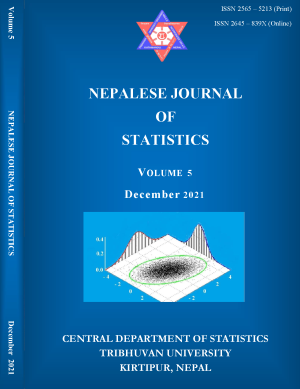Impact of Family Functioning, Family Violence and Other Factors on Juvenile Delinquency
DOI:
https://doi.org/10.3126/njs.v5i1.41231Keywords:
Family functioning, family violence, juvenile delinquency, ligistic regression, parental attachment, parental involvement, parental monitoring, parental supervisionAbstract
Background: Juvenile delinquency is the act of participating in unlawful behavior as minors or individuals younger than the age of majority. Nepal shows an increasing trend of violent crimes committed by a juvenile.
Objective: To examine the impact of family functioning, family violence, and other family factors on juvenile delinquency.
Materials and Methods: The study is a case-control study based on primary data collection of 354 respondents which include equal number of juvenile delinquents as cases taken from juvenile correction homes and school students as controls who have never been convicted for any act of juvenile delinquency. Data was collected through the convenience sampling method. Structured questionnaire was used to collect data on demographic, socioeconomic, individual and family factors. Bivariate and logistic regression analysis were performed to determine which factor act as a risk or protective factor for juvenile delinquency.
Results: From bivariate analysis, family factors such as family functioning, parental monitoring, parental involvement, parental supervision, and parental attachment were found higher in controls than cases. However, family violence was found higher in cases than control group. Further, from fitted logistic regression child age, aggressive behavior, family structure, family financial condition, punitive parenthood, mother education level, and parental attachment were found significant factors impacting on juvenile delinquency.
Conclusion: This study revealed that age, aggressive behavior, family structure, and family financial condition are the risk factors for juvenile delinquency. Further, mother education, punitive parenthood, and parental attachment are found protective factors for juvenile delinquency.
Downloads
Downloads
Published
How to Cite
Issue
Section
License
© Central Department of Statistics, Tribhuvan University, Kirtipur, Kathmandu, Nepal
The author of article must sign the copyright permission or the author must assign copyright to the Central Department of Statistics, Tribhuvan University prior to publication.
All rights reserved.




